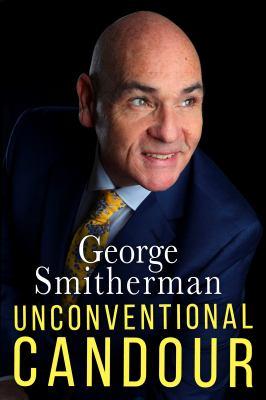
Unconventional candour
Available Copies by Location
| Location | |
|---|---|
| Victoria | Available |
Browse Related Items
- ISBN: 9781459744653
- Physical Description 272 pages : illustrations ; 23 cm
- Publisher [Place of publication not identified] : [publisher not identified], 2019.
Content descriptions
| General Note: | Includes index. |
Additional Information

Unconventional Candour : The Life and Times of George Smitherman
Click an element below to view details:
Excerpt
Unconventional Candour : The Life and Times of George Smitherman
Chapter One: Early Years I was born just ten weeks after the assassination of John F. Kennedy, coming into the world on February 12, 1964. My mother, Margaret, was a devotee of Kennedy. She saw him as the champion of the underdog -- the poor, the dispossessed, racial and religious minorities. His assassination affected her profoundly. My sister recalls her reacting hysterically to the images on television. Subsequently, the family made not one but two pilgrimages to the Arlington National Cemetery in Washington to see his gravesite. My mother's values came from her mother, my grandmother. My grandmother was born here and attended Jesse Ketchum school in Yorkville, a fact I learned from my mom on the day I was attending the school's hundredth anniversary. She and my grandfather were working-class people. He had emigrated from St. Anne's-on-the-Sea in Lancashire, England. They weren't particularly religious -- they were mildly Anglican. Nor were they involved in politics, although after my grandfather's death, at a time when I was really young, I recall seeing a poster of Pierre Trudeau in their home. But both my mother and grandmother possessed a social-justice streak. When my grandmother was working at my father's trucking business, she was transported there daily by taxis driven almost exclusively by immigrants from Lebanon, who politicized her with respect to the treatment of Palestinians. Similarly, my mother was imbued with a sense of the injustices visited on the Indigenous Peoples in Canada through her brother, who married a First Nations woman. And although they had limited formal education, they both had an interest in learning. To a very large degree, I am who I am because of the influence of my mother and grandmother. I was the fourth, and last, of the Smitherman children. My older brother was first, born in 1956 and named after my father, Arthur. My sisters, Joanne and Christine, followed in 1958 and 1962, respectively. Over that period, my family's economic circumstances improved markedly. I have always told everyone that I am the son of a trucker, and that is true. But by 1964 my father's single coal-hauling dump truck that served all purposes (including grocery shopping) had evolved into a growing fleet of tractor-trailers. Just months after my birth, the family moved from a combined home-and-truck-yard on Jay Street near Keele Street and Lawrence Avenue to a newly built bungalow in the West Deane Park neighbourhood ofcentral Etobicoke. The house had a backyard swimming pool and bordered on the Mimico Creek ravine. This was a big step up for my parents, especially my father. He had experienced extreme poverty as a child and was forced out of school in Grade 6 to work for a living. My mother's own background was barely better and remembered by my uncle (her brother) as a lot of living in basements with summers in shacks alongside the Credit River. My mother's father worked as a mechanic at Avro, the aircraft manufacturer that built the Lancaster, the famed Second World War bomber, and, after the war, the Avro Arrow, the Canadian interceptor jet cancelled by the Diefenbaker government in1959. Over the years, he was regularly away servicing planes at air force bases across eastern Canada. His job paid him a good wage, but he gambled much of it away. My father's father had the same gambling propensity, without a steady job to go with it. Perhaps in reaction, my father was driven to be a reliable provider for his family, although sometimes at the expense of being a nurturing parent. He worked seven days a week building up the trucking business. Up at six every morning, and not home before nightfall. So we didn't see much of him. The exceptions to this rule were Sunday breakfast (which he cooked), a yearly holiday in Florida (to which we drove both ways straight through), and summer Saturday afternoons entertaining customers around our pool. Excerpted from Unconventional Candour: The Life and Times of George Smitherman by George Smitherman All rights reserved by the original copyright owners. Excerpts are provided for display purposes only and may not be reproduced, reprinted or distributed without the written permission of the publisher.


